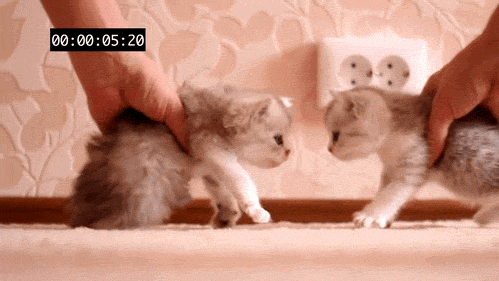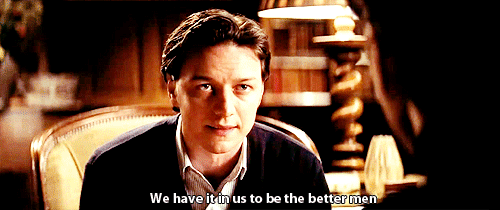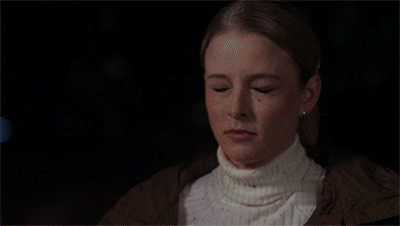Hollow Characters and the Black Swan of Dimensions (Or, Mary Mary Quite Contrary How Does Your Garden Grow?)

Surely, surely, by now you have seen Darren Aronofsky's Oscar-nominated Black Swan; oh, you know, the one about that dark, twisted ballerina? Right. Now we're on the same page. So as someone who probably spends far too much time analysing film and novels for the hell of it, I can tell you now that Black Swan has a lot of depth to it. I, however, will not be reviewing it or talking about any concepts you could expect; rather, I will be using it to talk to you about character perfection.
I don't like the term 'Mary Sue'. Like paranormal, or star-crossed or danger, it's misuse or even its overuse in YA has led to loss in its meaning. To defame a character by crying "Mary Sue!" is not as much of a scandal as it once was, and to some extent, the misunderstanding amongst the literary world has only led to repeat-offenders and the persistence of a worn formula in not smothering itself in its vapid-ness.
Yes, in my own way, I'm talking about dimensions. There's always a lot of talk about this: 2D or 3D, the former is an insult, the latter a compliment. I like to think of it rather as being a show of simple laziness or of meticulous orchestration, respectively. The table at this link is rather ingenious in its simplicity, and will straighten out any confusion you might have between the two. Lately, however, the lines seem to blur in some of the distinction in that a number of 2D characters have been able to maintain the facade of 3D-ness in their shell-like quality.
 Like morph-suits (see left), these shells fit quite snugly to the reader, allowing them to insert themselves effectively into the story as the protagonist. The result of this is the "vapid" character I often moan about. Little is disclosed about said character in order to make the suit fit more and more snugly. I have come to refer to these hollow suit-like shells of characters as morphettes.
Like morph-suits (see left), these shells fit quite snugly to the reader, allowing them to insert themselves effectively into the story as the protagonist. The result of this is the "vapid" character I often moan about. Little is disclosed about said character in order to make the suit fit more and more snugly. I have come to refer to these hollow suit-like shells of characters as morphettes.Often, the chief problem with morphettes is their perfection. Quite simply, it its the unbelievable nature of their flawless movement throughout their world, throughout their life. They don't ever stress on something stupid they said, and they don't ever contemplate how successful they'd be in hopping a plane to Norway and just ditching everything, and they don't ever fiddle with a pimple until they feel as though they'd transformed it into some sort of sizeable growth, and they certainly don't ever internally applaud themselves for any successful interaction with the opposite sex. No, morphettes do everything right.
I recently submitted a short letter for the position of Prefect at my school, and somewhere in there, I talked about emitting the pretence of perfection. There is a distinct line between presenting yourself as the brilliant, sophisticated, got-it-all-together perfect student while downright flipping a bitch on the inside, and being said brilliant, sophisticated, got-it-all-together perfect student.
Out of ten morphettes, I'd presume that more than half would be the result of the author not making that distinction. Whether that is intention, in a show of wish-fulfillment or a mistake of not being capable of characterising to that extent, perfection comes across as perfection.
However, it is the unbelievability that really irks readers. Some may find a talented, pretty and funny character to be too much - you shouldn't be a triple threat by those means. I, however, know plenty of people who are definite triple threats. For me, I think unbelievability slips through in the little things. Take me, for example. Throughout this entire post, every time I go to bold something, I hit 'P' instead of 'B' on the keyboard. (Christ, Nina. Bold doesn't even start with P.) Whenever I read something aloud, I seem to lose all concept of how to breathe properly. Whenever I walk into the video shop where the cute guy works, I develop a nervous tic in my neck via extraneous hair flicking. And lately, every time I see a picture of Michael Fassbender, I start hyper-ventilating.
I honestly believe that humanity is stunning. It's something that's developed with age (by which I refer to the fact many of you know: I seem to be ageing mentally a little quicker than I am physically (; ) It could be the books, it could be the art. It could be the overload of films I watch and the couch-potato arse I'm developing as a consequence. But that's not the point. If you implement humanity in the portrayal of your characters, you are far more likely to gain my applause. If I can look at a book and think "I've said/thought/done/wanted to do/aspired to/done that before", that link that I've gained is somewhat more valuable than the implementation of a morphette.
So, now you ask: "The hell does Black Swan have to do with any of this?"
That's a very good question. (And I don't mean that in the way that teachers who have no idea what the answer is do before they tell you to go and research it for extra homework)
Black Swan very clearly illustrates the fact that perfection and a 3-dimensional character is not possible, or even that perfection is not possible. Nina, (Whoa, whoa. I know, it made me double take too.) who Natalie Portman portrays, is a mentally troubled woman who seeks nothing but perfection. Ballet, like school, is very much a pursuit of perfection. She is pretty, talented, skinny enough, short enough and knows all of the choreography. Perfect, right? She's also in the later side of her career, in her late twenties, frigid, unable to loosen and master the Black Swan through emotion, cripplingly appropriate and simply: too pure to function. If you didn't have these flaws, would you have a film? No. But it's her desire, her unwavering pursuit of perfection, that causes her flaws and her strengths to collide.
 This collision is imperative. It creates conflict, and what does conflict drive? "The story!" Yes, exactly. The interweaving of flaw and strength creates the character journey, the baked pretzel of a Mario Kart track (Where was I going with this metaphor?) that shoots across the course of the novel in a big, fat arc. Yes, the arc! If there is no conflict to fuel the engine of this pretzel-metaphor then you have drag this across the novel. That means transferring the workload to other characters, to infodumps, to poor plot and deus ex machina on occasion. Wouldn't creating a believable, flawed protagonist sound so much easier?
This collision is imperative. It creates conflict, and what does conflict drive? "The story!" Yes, exactly. The interweaving of flaw and strength creates the character journey, the baked pretzel of a Mario Kart track (Where was I going with this metaphor?) that shoots across the course of the novel in a big, fat arc. Yes, the arc! If there is no conflict to fuel the engine of this pretzel-metaphor then you have drag this across the novel. That means transferring the workload to other characters, to infodumps, to poor plot and deus ex machina on occasion. Wouldn't creating a believable, flawed protagonist sound so much easier?"But what do we do, oh mighty blogger?"
Aha, well. Don't fill out a character sheet. That tells you nothing. Thinking up flaws and then thinking up strengths doesn't make a believable character, it creates an ineffective Frankenstein monster, wearing the skins of other characters. Strengths and flaws have to complement each other. That is why Nina in Black Swan is such a brilliant character. She has motive, strengths and flaws that correlate and drive her story forward.
Perhaps you should sit yourself down with a blank piece a paper. Write your character's name in the middle, then list their motive. Say, it's the desire to be remembered. What strengths could you give them that would lead to that? Charisma? The capabilities to perform incredible feats, or overwhelming talent. Unfaltering luck? The connections necessary to do so? Alright, then what weaknesses can you draw? Pigheadedness? Offensive determination, or a callous social demeanour as a result of their continual competitiveness? Do not be afraid to make me dislike your character. There is a difference between disliking the person, and disliking your characterisation. One is something I have to deal with, the other is the your fault.
So, then what should you be extra-wary of? I've come to understand that the common offenders of morphette syndrome are: villains, found in old superhero cartoons; protagonists, of the present-day YA crop; and replacements, minor roles created to fill gaps.
When you think of villains of a morphette nature, think of the faceless thugs you put up against your hero to prove his might. It's okay because they're pawns. However, when your antagonist, your main villain, is faceless, you have problems. Villains need depth, perhaps more than a protagonist needs it. I find that Iago, or even Victoria from TWILIGHT, is superior to the rest of their cast in that they have depth. Iago knows what he wants, he's good at manipulation and he's a terrible, terrible person. Victoria is out for revenge, is skilled but rather psychotic. But you know why. For villains, it's not so much the motive-strength-flaw triad, but that combined with background.

Take Magneto for example (If we're going to continue the Fassbender extravaganza): he commits deplorable acts, but he doesn't just do in order to be deplorable. He was in a concentration camp as a child, and he knows from experience the consequences after one group of people decide that another group is less than human, and they act on enforcing this superiority. To him, his actions are necessary, that he's preventing a second Holocaust (of a mutant kind). His stance as the villain wasn't absolute always. He experienced tragedy at a young age, was best friends with the hero, but his beliefs and his concept of the extent he could go to in order to fulfil these beliefs clashed with the hero. Ergo, Magneto.
We've spoken more or less about protagonists already, and how they have brought about the morphette label. I'm sure you can fill in the BLANK with a number of examples, too. I won't preach to you about protagonists, because really, that's a matter of your own voice. I will only beseech you to consider abandoning the current formula and cutting out your own little piece of endearing, believable and stunning humanity. You don't need a morph suit to invoke your reader's empathy.
Now replacements. I'm not sure whether I've spoken about these before on this blog or just on forums. So, if you've watched Band of Brothers (If you haven't, go to your local video store now. Seriously. I'll wait.), you'd know that "replacements" is the label given to the soldiers who were sent onto the line to replace soldiers that had died in combat. They were usually not held in high regard. Hence, replacements are those characters that pop up later in the book-slash-season-slash-series and aren't really necessary for much else but plot or time-wasting or dramatic death. The most recent and most infuriating example that springs to mind is Ashley Seaver, off of Season Six of (my beloved) Criminal Minds. This might be a little controversial, but let's face it: here at nindogs, we sit controversy down, give 'em a beer and sing war songs.
 Let's just say that I am not accommodating to the notion of allowing fanfiction-worthy characters into my sacred space. Seaver comes across as a rash replacement in lieu of the loss of a main character, JJ, and the imminent loss of Prentiss. The problem is that Seaver was just not written well. The introduction of new characters can be incredible and exhilarating, but she is just not good. You are immediate assaulted with the film-equivalent of an info-dump on her background. You want to get to know a new character like you would a new friend: slowly, with reveals that gradually shape her person. She was presented to the audience in a way that was uncomfortable. She hasn't graduated from the Academy, she hasn't any experience, and yet, in order to keep up with the rest of the cast, the writers have been forced to give her worldly revelations and bouts of relevant information that strikes me as unrealistic. What if they'd taken a chance? Let her fuck everything up? Let her get terms confused, or let her overstep boundaries that have been put in place over many years of this team working together?
Let's just say that I am not accommodating to the notion of allowing fanfiction-worthy characters into my sacred space. Seaver comes across as a rash replacement in lieu of the loss of a main character, JJ, and the imminent loss of Prentiss. The problem is that Seaver was just not written well. The introduction of new characters can be incredible and exhilarating, but she is just not good. You are immediate assaulted with the film-equivalent of an info-dump on her background. You want to get to know a new character like you would a new friend: slowly, with reveals that gradually shape her person. She was presented to the audience in a way that was uncomfortable. She hasn't graduated from the Academy, she hasn't any experience, and yet, in order to keep up with the rest of the cast, the writers have been forced to give her worldly revelations and bouts of relevant information that strikes me as unrealistic. What if they'd taken a chance? Let her fuck everything up? Let her get terms confused, or let her overstep boundaries that have been put in place over many years of this team working together?The problem with replacements which is so tricky is convincing the reader that they belong. In some respects, they could never belong because they're not as familiar as the protagonists. By introducing them, however, you've drawn attention to them, and therefore, your reader is given the right to question their presence. Perhaps you need to ask yourself: why are they there? Is it plot-related? Is it necessary for your reader to like them? Do you want to maintain that wall of mistrust, or tear it down? Perhaps with Cassandra Clare had made Sebastian more of a believable character, (In CITY OF GLASS) and made the reader truly take notice of him, his betrayal might have been more dramatic.
(I really do apologise if I'm not being coherent enough: I'm multitasking. You know, blogging and having a Steve McQueen marathon)
So, how do I end this? Perfection isn't a personality trait. It's a sentence for your character, condemning them to brutal scrutiny. It's like when a debut author is hyped up as "The next JK Rowling". You go in with the intention of comparing the two. Perfection is something you should be very careful with. Talent, beauty, wit - they're things that are common amongst people and are a matter of taste. However, vulnerability, incapabilities and glorified fuck-ups are a show of humanity and are, in my opinion, underrated.
It might seem like a good idea at the time to give your character everything they want, but you need to unleash your inner sadist. Your characters are marionettes, so make them dance for your amusement. It's like a bad car accident that you drive past - you can't help looking. If you inflict pain upon your characters instead of trying to fulfil your dreams through them, you might find that you not only show who they are, but hell, you might influence your voice as a writer in the formation of your protagonists, your characters.
Don't tread on the little guy. (;
Note: I may be a little AWOL now, as I was the past couple weeks, in that I'm preparing my entry for the Sydney Morning Herald's Young Writer of the Year, as well as juggling my schoolwork and my revisions. I'll get it done. But don't worry: come this school holidays, you'll have me all to yourselves with multiple posts per week and blogfests and such and such.
Awesome post! You always leave me thinking. I'll have to sit down and think about my characters more deeply. By the way, I tagged you on my blog. :)
ReplyDeleteDrivel.
ReplyDelete